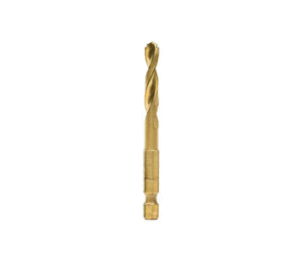Our Location
304 North Cardinal St.
Dorchester Center, MA 02124

When you’re working with fasteners, especially in demanding applications, the type of bit you use can make all the difference. The two most common types of bits for impact drivers are cross-head (also known as Phillips or Pozidriv) and flat-head (also known as slotted). The choice between them isn’t about one being universally “better,” but rather about matching the bit to the specific fastener and task at hand. The correct choice prevents cam-out, stripped screws, and wasted effort.
Cross-head bits are the most ubiquitous type of driver bit. The design was revolutionary because it was self-centering and created a “cam-out” effect under high torque, which was a deliberate design choice to prevent over-tightening of screws in early assembly lines. The Phillips head has a slight taper, meaning the bit is designed to slip out of the screw head once a certain torque is reached. While this was useful in a manual world, it can be frustrating with a powerful impact driver, as the bit is constantly trying to slip out of the fastener’s recess. This leads to stripped screw heads and damaged bits. For this reason, Phillips bits are generally not the best choice for high-torque impact driving unless you’re using them with screws specifically designed to resist cam-out.
A significant improvement on the Phillips design is the Pozidriv (PZ) bit. It looks similar but has four additional small lines or ribs between the main crosses. This design provides a larger surface area for contact, which significantly reduces the cam-out effect and provides a much more secure grip on the fastener. Pozidriv screws and bits are commonly found in Europe and are far more suitable for high-torque applications with an impact driver than their Phillips counterparts. When a professional is using a screwdriver bit with an impact driver, they are almost always using a Pozidriv bit if the screw has a cross-head. It’s crucial to use a Pozidriv bit with a Pozidriv screw, as a Phillips bit will not fit correctly and will strip the screw head instantly under the force of an impact driver.
Many brands offer high-quality cross-head bits specifically designed for impact drivers, which are often made from a tougher, more durable steel to withstand the constant hammering action. These are not your standard screwdriver bits. Milwaukee’s SHOCKWAVE™ Impact Duty™ bits are a popular choice. They feature a unique geometry and a special heat-treated steel to absorb the peak torque and prevent premature failure. Their PH2 (Phillips #2) and PZ2 (Pozidriv #2) bits are among their best-sellers. Similarly, DeWalt’s FLEXTORQ® series offers bits with a torsion zone that flexes under high torque to absorb impact and prevent breaking. Bosch’s Impact Tough™ bits and Makita’s Impact GOLD® series also offer similar features. These brands have optimized their cross-head bits for impact use by using specialized alloy steels, advanced heat treatments, and torsion zones to make them more resilient against the powerful force of an impact driver.

Flat-head bits, also known as slotted bits, are one of the oldest and simplest fastener designs. They are used with a straight, single slot on the screw head. While they are still in use, they are far less common in modern construction and woodworking. The primary reason for their decline is their inherent design flaw when used with powerful tools. Unlike a self-centering cross-head, a flat-head bit has a tendency to slip out of the slot very easily, a phenomenon known as “skating.” This lack of a secure fit makes them highly unsuitable for an impact driver, which applies powerful, percussive force. Trying to drive a flat-head screw with an impact driver is a surefire way to damage both the bit and the screw head, and potentially injure yourself. The lack of a cam-out feature means you can over-tighten and break the screw, but the constant slippage makes it a frustrating and inefficient process. For this reason, flat-head bits are rarely, if ever, recommended for use with an impact driver. They are best reserved for manual screwdrivers or very low-torque applications.
Due to the fundamental incompatibility between a flat-head bit and an impact driver, most major manufacturers don’t heavily market their flat-head impact bits. They are often sold as part of a general bit set but are not the star of the show. Milwaukee, DeWalt, and other brands will include SL6 (slotted 6mm) or SL8 bits in their mixed impact bit sets, but they are not the primary focus. You will find them in sets like the DeWalt DW2166 or the Milwaukee SHOCKWAVE™ 48-32-4006 sets, but the marketing and design focus is overwhelmingly on the cross-head, square-drive (Robertson), and Torx (star) bits, which are far more suited for high-torque applications. A manufacturer who makes an impact-rated flat bit is simply ensuring their set is complete, not suggesting that it is the best tool for the job.
When it comes to the question of whether a cross or flat impact drill bit is better, the answer is unequivocally the cross-head bit, but with a critical distinction. The Pozidriv (PZ) cross-head bit is vastly superior for use with an impact driver compared to a Phillips (PH) or a flat-head (slotted) bit. The Pozidriv’s design, with its enhanced grip and reduced cam-out, makes it ideal for the high-torque, high-speed applications that an impact driver excels at. The flat-head bit, by contrast, is fundamentally ill-suited for an impact driver due to its tendency to slip and the high risk of damage.
So, when you are choosing bits for your impact driver, focus on the Pozidriv (PZ) and other superior designs like Torx (T-star) and Robertson (square drive), which are the modern standard for high-performance fastening. These designs provide maximum engagement and minimize the risk of stripping the fastener, which is the ultimate goal when using an impact driver.